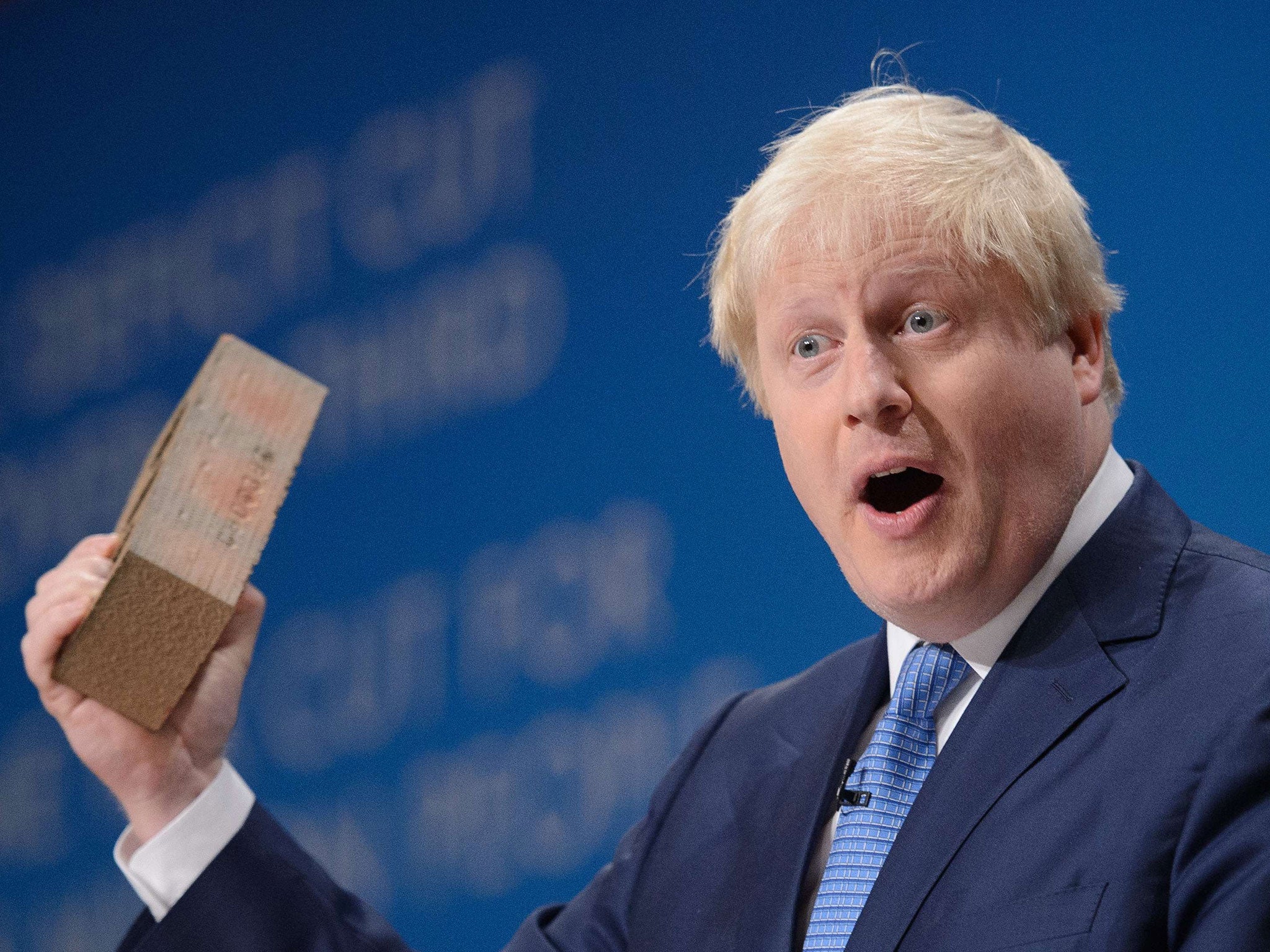Boris Johnson has revealed his true colours and taken a brick to people power
The Mayor of London has effectively killed off any hope of devolved power in London

Your support helps us to tell the story
From reproductive rights to climate change to Big Tech, The Independent is on the ground when the story is developing. Whether it's investigating the financials of Elon Musk's pro-Trump PAC or producing our latest documentary, 'The A Word', which shines a light on the American women fighting for reproductive rights, we know how important it is to parse out the facts from the messaging.
At such a critical moment in US history, we need reporters on the ground. Your donation allows us to keep sending journalists to speak to both sides of the story.
The Independent is trusted by Americans across the entire political spectrum. And unlike many other quality news outlets, we choose not to lock Americans out of our reporting and analysis with paywalls. We believe quality journalism should be available to everyone, paid for by those who can afford it.
Your support makes all the difference.Remember Localism? It was born alongside The Big Society in the Conservative’s election Community Chest for the 2010 elections. It was then enshrined in the Localism Act a year later, which aimed to "devolve more decision making powers from central government back into the hands of individuals, communities and councils."
But it died on Friday morning when London Mayor Boris Johnson overruled two democratically elected local council and a very active local community. He killed it when he imposed upon them a massive development of mainly private flats which he had previously described as “a wonderful place to live”. They don’t agree.
This is not how things were meant to be. If anything, localism should have meant that decisions of this kind would made from the local level upwards, not the other way round.
At Mount Pleasant, the vastly valuable development site in North London which Royal Mail picked up for a song when it was controversially privatised, the concept was turned on its head with the decision made by the top riding roughshod over all the local views.
At a bad-tempered three-hour meeting at London’s City Hall Boris typically dismissed all the objections with a wave of his hand. The Royal Mail scheme was “well-considered”, “imaginative” and a “high-quality new neighbourhood for London”, he insisted.
The meeting was repeatedly interrupted by members of the public who wanted to know why they were not allowed to speak at a public meeting. They jeered at the designs, which look like typical high-rise high density proposals meant to produce the maximum number of saleable units. And they questioned the affordability of the “affordable” homes (they are not, unless you earn £100,000 a year).
Islington councillor James Murray said: “This is a cynical exercise by Royal Mail to maximise the value of the site at the expense of affordable homes for ordinary Londoners. You are handing over a huge windfall to Royal Mail which we estimate to be worth at least £30 million.” Camden, the other council whose land Mount Pleasant straddles, had also rejected the scheme several months ago.
But Boris said the scheme was “well-considered”, and Boris is, as we know, an honourable man. So planning permission was granted. Just like that.
None of this could have happened before 2008. Until then Mayors had powers to refuse projects approved by local councils, but not to allow projects they had rejected.
But for the past six years Boris has been able to do just this. Which is why, when they knew that Camden and Islington were on the brink of rejecting their plans late last year, Royal Mail took their plans direct to a very receptive Mayor. Moreover, while they had offered the two Labour councils around 20 per cent “affordable” homes, the scheme presented to Boris included only 12 per cent.
So City Hall can claim it “doubled the affordable housing”, which is sleight of hand. Their claim that the 10 buildings, rising to 15 storeys, would “meet local needs” was greeted by snorts of derision from the crowded public gallery. The blocks were designed by a veritable Who’s Who of British architects: AHMM, Allies & Morrison, Feilden Clegg Bradley and Wilkinson Eyre.
But one local, fellow designer Thomas Heatherwick, branded it “empty, cynical and vacuous” – until he was forced to retract by the architecture establishment who, as Prince Charles can testify, are a very scary bunch.
The Heir to the Throne played no direct role in this particular row, but a rival scheme for the site, designed along townscape features he support by one of his favourite architects, made an H-Hour appearance. Designed by the Create Streets organisation, it was promoted by the Mount Pleasant Association, and in a survey approved by 98 per cent of nearby residents. You can’t get more local than that.
But, as I feared all along, if “localism” and "empowering the people" was ever anything more than just a hollow political cliché, it certainly isn’t now. RIP.
Join our commenting forum
Join thought-provoking conversations, follow other Independent readers and see their replies
Comments